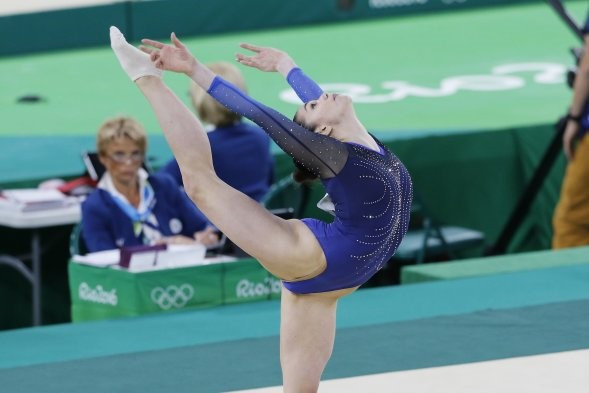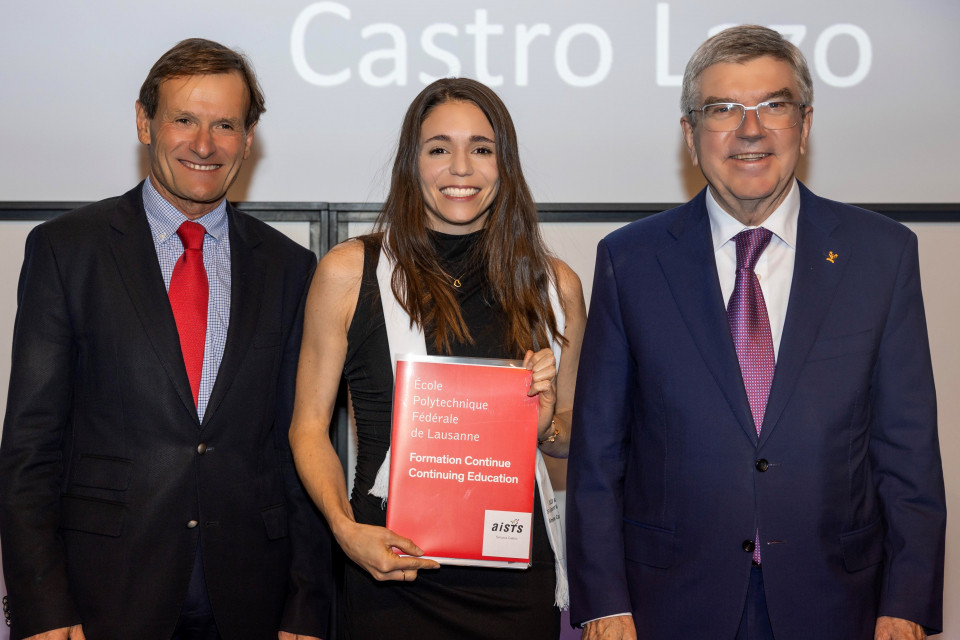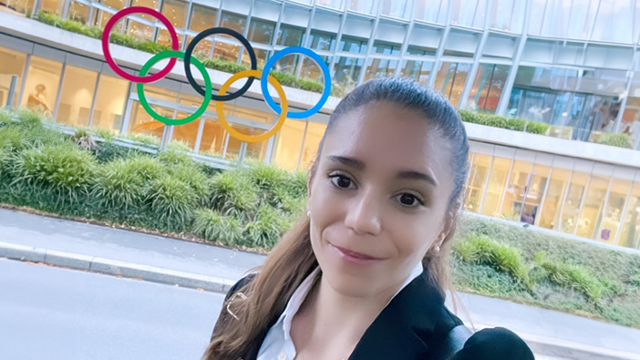In 2012, Simona Castro made history as the first female artistic gymnast from Chile to compete in the Olympics. Fast-forward a few years and three Olympic Games participations, and she is an EPFL graduate, having completed the prestigious AISTS program, the world’s top sports management master's program. As the 2024 Summer Olympics in Paris approach, Simona shares her remarkable journey.
How did you start in artistic gymnastics, and how did it grow into a career?
I started gymnastics when I was six years old, initially as a recreational activity. I wasn’t the most talented kid at first but over time, my skills, technique, and strength started to improve. Coming from a sports family and having my older sister already involved in gymnastics helped a lot in terms of support, since our parents always allowed us to try as many sports as we wanted. By the time I was 13, I started to focus more seriously on gymnastics, and went from three to six hours of training per day, five days a week. In 2005, at age 16, I competed in my first World Championships. By 2007, I realized that I had a chance, the potential and the skill level required to go further and started to consider going to the Olympics. Gymnastics has opened many unexpected doors for me, including a scholarship for my bachelor’s degree at the University of Denver in 2009, where I competed in Division I, an experience that certainly built my competitive mindset for the Olympic level.
You became the first woman from Chile to compete in artistic gymnastics at the Olympics and participated in three different Olympic Games. Which one was your favorite and why?
London 2012 was definitely my favorite. It was my first Olympics and an unparalleled experience. The qualification came on my birthday and it was a surprise since I was balancing my time between studies and sport, competing for the University of Denver and at the same time at the international level. However, my coaches and I had been working really hard to polish my skills for the routines and by the time the qualification for the Games arrived, I was more than ready. After that, everything was about enjoying the journey and London did a great job at putting on a show and creating an amazing experience for all athletes. Each ones of my experiences at the Olympics was unique and came at a different stage of my life, bringing different emotions and memories, but London holds a special place in my heart. I hope my journey has helped inspire interest in gymnastics in Chile and encouraged more kids to take up the sport.
Can you take us through your experience as an athlete at the Olympics? How were the days before the competition, and what was the atmosphere like at the Olympic Village?
The love for sports was palpable in and out of the competition arenas. It was incredible to see so many people united by their passion for sports, and the energy inspired everyone around. It was heartwarming to see other athletes training just as hard as you are and to realize that you are not the only crazy person putting that much effort and passion into it! Cultural exchange was very enriching, providing the opportunity to meet people from all over the world, proving the power of sports to unite people. The Olympics are a time to enjoy and to trust the hard work. Despite competing as an individual, I had an amazing team of women from different countries, creating a very supportive environment and everlasting memories.

Why did you choose to join the AISTS program?
The decision was driven by my passion for sports, the program’s strong focus on project management - a field in which I was looking to pursue my development - and the diversity of the programme’s curriculum. I was also very excited to be surrounded by like-minded people, my classmates, who all shared a deep passion for sports.
What aspects of the program did you enjoy the most?
The technological aspect provided by EPFL was particularly exciting. One of our group projects involved developing a sensor-based skateboard, using data to analyze speed, foot positioning, and provide feedback to optimize tricks. This challenged me to learn about different areas I had no experience in and opened my eyes to the technology behind sports. Additionally, the comprehensive and holistic approach the program offers — from technology to business, management, sociology, legal aspects, medicine and marketing, to name a few — is very unique and highly recommended for anyone who wants to work in sports.
You graduated from AISTS in 2023 and have now joined the International Olympic Committee. What is your role exactly?
I work at the Athletes’ Department, supporting programmes that assist Olympic athletes beyond their sports careers. This includes career planning, business entrepreneurship, mental health resources, dual career, and several other resources that are useful to athletes while they compete and will also be useful after, when they decide to retire. We will get the chance to be in Paris this summer and engage directly with athletes, present some of our programmes, as well as resources and benefits available to them. I get to discover the other side of sport and it’s going to be a completely different experience from my previous Olympics. I’m excited for the next steps in my career!

Comments0
Please log in to see or add a comment
Suggested Articles



